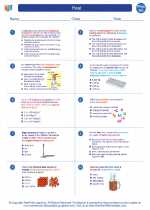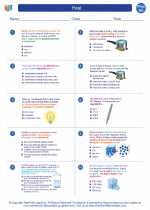History
History is the study of the past events, people, and societies. It encompasses all human activities and endeavors from the earliest times to the present. Studying history helps us understand the development of human civilization, societies, cultures, and the events that have shaped the world we live in today.
Key Concepts in History:
- Historical Events: These are specific occurrences that have had significant impacts on societies, such as wars, revolutions, and technological advancements.
- Historical Figures: Individuals who have played crucial roles in shaping the course of history, such as political leaders, scientists, artists, and activists.
- Cultural and Social Changes: The evolution of societies, traditions, languages, and customs over time.
- Historical Documents: Written records, artifacts, and archaeological findings that provide evidence of past events and lifestyles.
- Historiography: The study of historical writing and the methods used by historians to interpret and analyze the past.
Study Guide for History:
When studying history, it's important to engage with the material actively and critically. Here are some tips for effective history study:
- Read Widely: Explore a variety of historical sources, including primary documents, academic articles, and historical narratives.
- Contextualize Events: Understand historical events within their broader social, political, and cultural contexts.
- Analyze Cause and Effect: Consider the reasons behind historical developments and their impacts on subsequent events.
- Compare Perspectives: Examine different historical interpretations and viewpoints to develop a well-rounded understanding of a topic.
- Develop Chronological Awareness: Create timelines and grasp the sequence of events to visualize historical progression.
- Engage in Discussions: Participate in debates, group discussions, and historical analysis to deepen your understanding of complex historical issues.
- Utilize Technology: Leverage digital resources, historical databases, and multimedia materials to enhance your study experience.
By approaching history with a critical mindset and a willingness to explore diverse perspectives, you can gain a deeper appreciation for the complexities of human experience throughout time.
.◂Physics Worksheets and Study Guides High School. Heat
The resources above cover the following skills:
PHYSICAL SCIENCE (NGSS)
Energy
Students who demonstrate understanding can:
Create a computational model to calculate the change in the energy of one component in a system when the change in energy of the other component(s) and energy flows in and out of the system are known.
Develop and use models to illustrate that energy at the macroscopic scale can be accounted for as either motions of particles or energy stored in fields.



